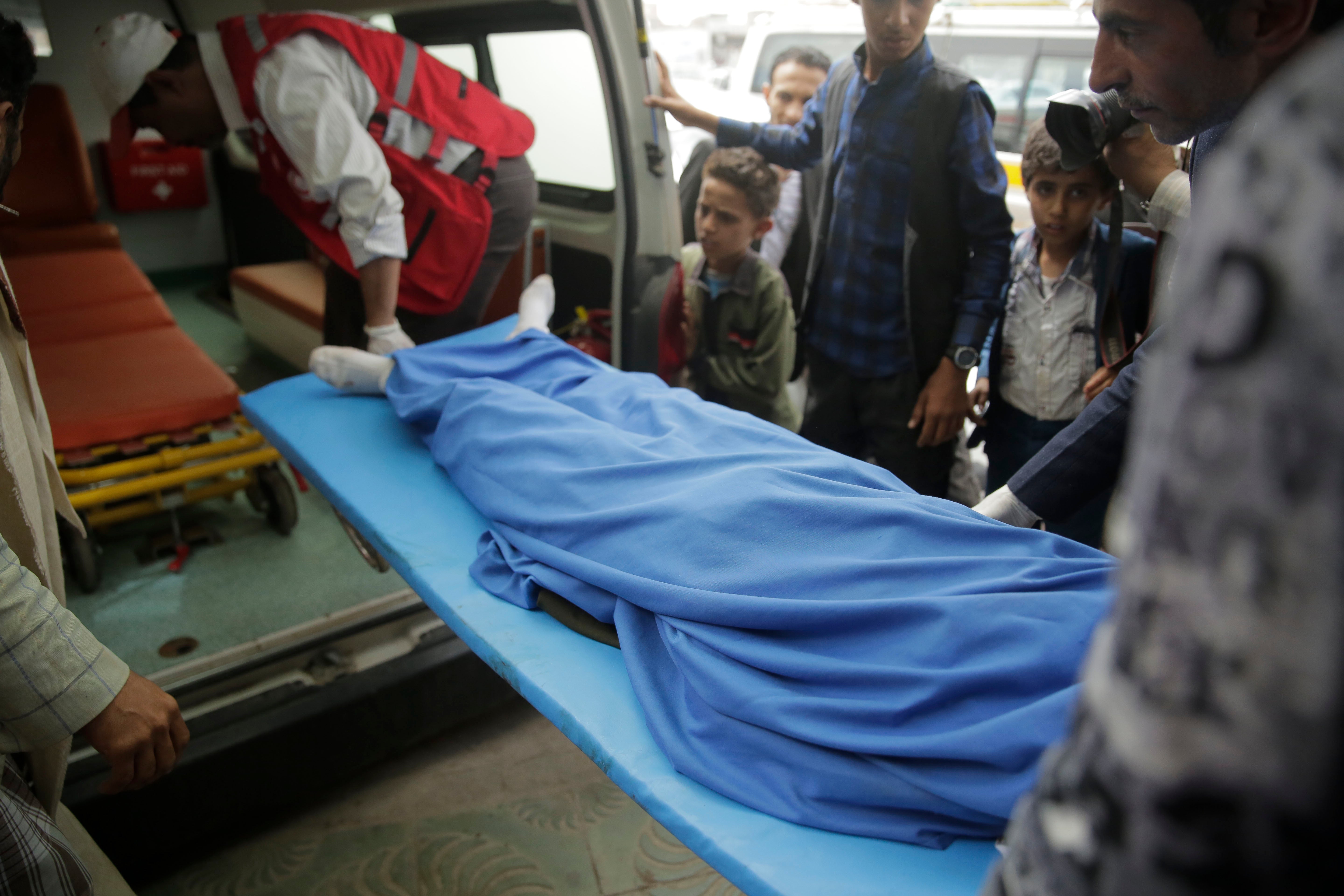Agency: 1/4 of civilian casualties in Yemen are children
A child relief agency says children constituted a quarter of civilian casualties over the last three years in Yemen’s grinding war between the Iran-backed Houthi rebels and the internationally recognized government

Your support helps us to tell the story
From reproductive rights to climate change to Big Tech, The Independent is on the ground when the story is developing. Whether it's investigating the financials of Elon Musk's pro-Trump PAC or producing our latest documentary, 'The A Word', which shines a light on the American women fighting for reproductive rights, we know how important it is to parse out the facts from the messaging.
At such a critical moment in US history, we need reporters on the ground. Your donation allows us to keep sending journalists to speak to both sides of the story.
The Independent is trusted by Americans across the entire political spectrum. And unlike many other quality news outlets, we choose not to lock Americans out of our reporting and analysis with paywalls. We believe quality journalism should be available to everyone, paid for by those who can afford it.
Your support makes all the difference.Children constituted a quarter of civilian casualties over the last three years in Yemen s grinding war between Iran-backed Houthi rebels and the internationally recognized government, a child relief agency said Tuesday.
More than 2,300 children were killed between 2018 and 2020, Save the Children said in a new study. However, the group said the actual toll is likely to be much higher.
“Yemeni children have been living through a horrific and endless nightmare for six years now. Children continue to be killed and injured on a near-daily basis," said the organization's country director, Xavier Joubert.
Save the Children's report comes on the heels of a UNICEF statement issued Saturday, saying that eight children were killed and 33 wounded this month alone.
Philippe Duamelle, UNICEF’s representative to Yemen, said the casualties happened in several areas including the provinces of Taiz and Hodeida, where fighting between forces of the internationally recognized government and Houthi rebels has recently intensified.
On Monday, Saudi Arabia offered their Houthi rivals a cease-fire plan that includes the reopening of Sanaa international airport, which has been under siege for almost six years. The Houthis downplayed the offer, claiming it did not offer anything new.
“All parties to the conflict must fully implement a cease-fire as soon as possible," said Joubert. "The cease-fire should be used to work towards a sustainable peace and a political solution to this war — it’s the only way to truly end this humanitarian catastrophe.”
Like other relief agencies, the London-based Save the Children deplored plummeting funding levels for relief efforts in the war-stricken country. The group said its funds for aid to children in Yemen has dropped by more than 40% compared to last year.
“If the U.N.’s predictions are correct, the worst famine in decades could kill hundreds of thousands of children. We must do everything we can to prevent this from happening,” said President and CEO Janti Soeripto.
Yemen has been convulsed by civil war since 2014 when the Houthis took control of the capital Sanaa and much of country’s north, forcing the government of President Abed Rabbo Mansour Hadi to flee to the south, then to Saudi Arabia. A Saudi-led coalition, backed at the time by the U.S., entered the war months later to try to restore Hadi to power.
Now mired in stalemate, the war has killed about 130,000 people — including more than 12,000 civilians — and spawned the world’s worst humanitarian crisis in a country that was already the Arab world’s most impoverished nation.
The Biden administration has been keen to stop the war in Yemen. Earlier this month, the U.S. envoy for Yemen, Tim Lenderking, urged the Houthis to accept his cease-fire proposal. However, the rebels are still pushing aggressively to take the government stronghold of Marib, in central Yemen.